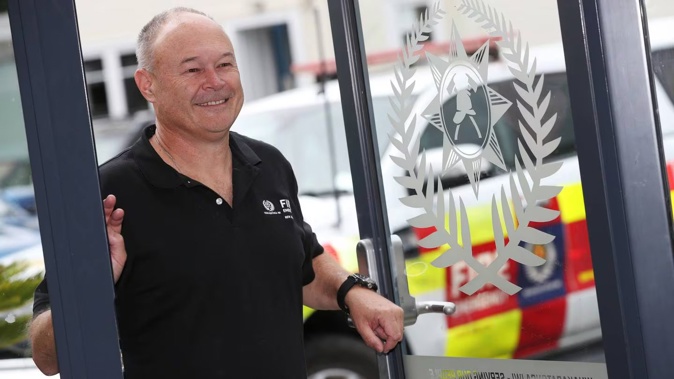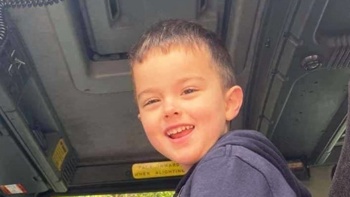
As soaring temperatures and dry winds fanned the flames of multiple bush fires raging in Queensland, Australia, Aotearoa’s finest were dispatched in November to bring the fire back under control. Northland’s Fire and Emergency group manager Denis Cooper was one of them.
Ravaged bushlands, barren farmlands and destroyed homes were the sights that greeted Cooper when he arrived at the city of Toowoomba in Southern Queensland.
Last month, two teams (Alpha and Bravo) consisting of 53 personnel from Fire and Emergency NZ (Fenz), the Department of Conservation (DoC) and forestry industries were deployed at the request of Queensland Fire and Emergency Services (QFES).
“We were tasked to temporarily take over for the local Australian firefighters who have been working tirelessly for months battling the bush fires in their country,” Cooper said.
He recalled a heart-touching moment when some of the worn-out firefighters who were being relieved profusely thanked him and his team for travelling all the way from Aotearoa.
“Made me realise that while both countries give each other a hard time, when push comes to shove,we actually work and support each other remarkably well,” Cooper said with a chuckle.
He said the local fire crew were smart to call for help early on, as by their admission they weren’t fully equipped to extinguish the wildfires spread across the region.
On landmass alone, Queensland was about 6.5 times larger than New Zealand, making it a challenging situation to resolve single-handedly.
Figures provided by the Australian Government show more than 7000 emergency service personnel were involved in fighting the fires – including help from Aotearoa, Canada and the US.
Back in Australia, Cooper was an operations officer whose primary role was to look after the logistics – the planning and mapping movements of aircraft, ground vehicles and personnel to douse the raging flames.
“The positive for us when we arrived was that it was raining in southern Queensland, which offered us a temporary relief and a bit more time to get settled in and learn more about the weather patterns.”
Cooper said during their first week they were briefed about how several spells of “dry lighting” had caused scores of fires across Queensland.
/cloudfront-ap-southeast-2.images.arcpublishing.com/nzme/ABKZ3U27O5BEDFPYYDXMMYKAVQ.jpeg)
Fire and Emergency New Zealand’s Alpha and Bravo teams faced intense situations in their work dousing wildfires across Queensland.
“So, we worked with analysts, observed where the lightning struck often, studied the satellite imagery for heat spots and put plans in place to mitigate the fire.”
While military aircraft were strategically used to extinguish the flames, on-ground teams such as bulldozers and excavators worked with the fire crews to clear debris and create “firebreaks” - a gap in vegetation that acts as a barrier to slow down the fast-spreading fire.
Cooper said their second and final week was no different, as they repeated the drill that worked for them.
He remembers collecting samples with his colleague from a bush area and testing its moisture content.
They were shocked that the levels were below 10 per cent.
New Zealand fire crews worked long hours in arduous conditions to help their Australian counterparts. Photo / Michael Cunningham
“You could go light a match and have a bush fire in no time.”
During his field trip, he was taken aback at how the small and rural communities were dependent on government support.
As many as 50 houses were burnt to a crisp in Toowoomba and hundreds of people were displaced.
Cooper recalled one instance when a person suffered a heart attack and died when he was trying to escape his house from the fast-approaching fire.
“Every town only has a 20-minute warning before they can evacuate. So, you could be having a beer and the next moment be told of the embers that will rain on top of your locality.”
In another instance, kids at a nearby school were asked to stay indoors as firefighters fought to keep the school from catching fire.
“It was about 10 metres close to the school before we stopped it. But that was probably the most terrifying experience for me. All those kids and staff were depending on us to save them.”
Cooper said in his 18 years as a firefighter, this trip was his first “high-intensity” work overseas.
Fire crews have been deploying personnel internationally to tackle wildfire emergencies for more than 20 years.
Avneesh Vincent is the crime and emergency services reporter at the Advocate. He was previously at the Gisborne Herald as the arts and environment reporter and is passionate about covering stories that can make a difference. He joined NZME in July 2023.
Take your Radio, Podcasts and Music with you

/cloudfront-ap-southeast-2.images.arcpublishing.com/nzme/VUTTWA2AXJDX7E2TQYB5LOCT5Q.JPG)








